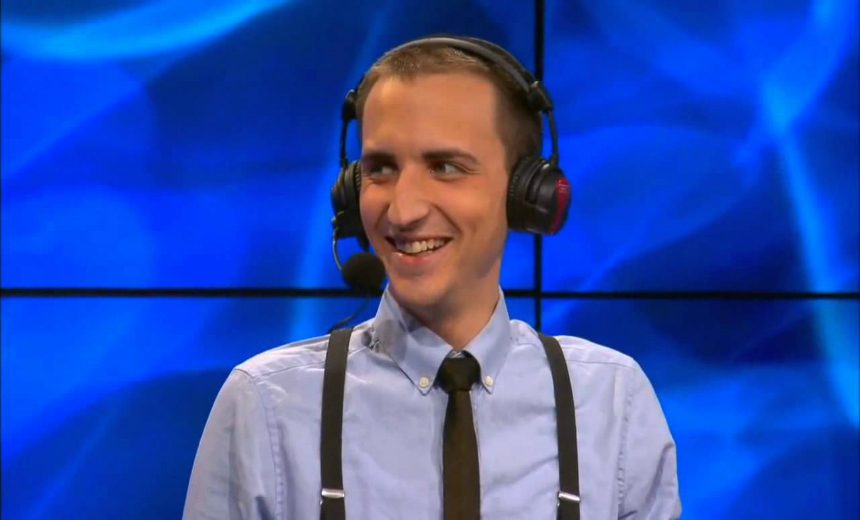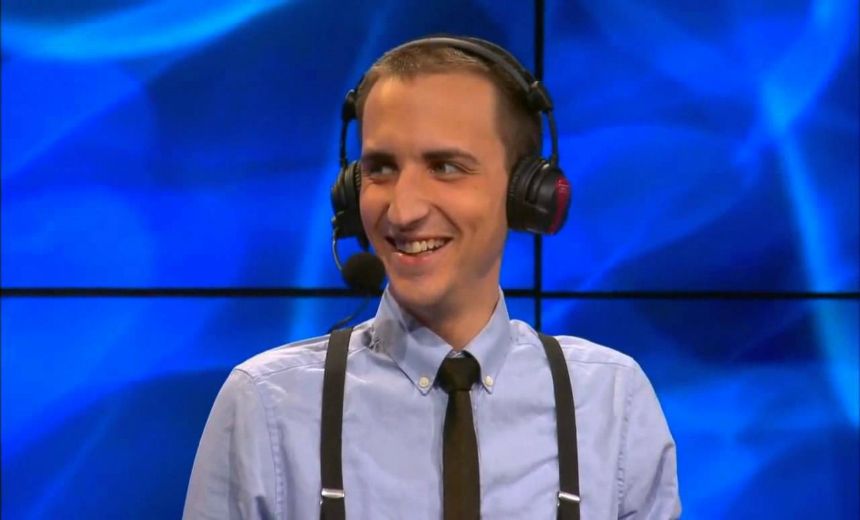
Today, OGN caster, Christopher “MonteCristo” Mykles, released another YouTube video in the series titled “Monte’s Musings”. This latest entry into the series, “Riot’s Caster Cage”, shed some light on the working conditions of Riot’s casting team.
Coaches, players, and fans alike have known about some of these issues, but it was quite an eye opener to see and hear them listed with insightful commentary about why these restrictions are put on Riot’s employees.
The video is a little over an hour long and deserves to be viewed, especially the first half, in its entirety. However, not everyone has that kind of time and since these are issues that should at least be acknowledged by fans of any League of Legends broadcast, the key points will be highlighted below with timestamps.
[3:38] “If it was so bad at Riot, why don’t the casters say something?
(Monte sheds light on the myth that casters are not openly complaining because conditions are fair and acceptable.) The truth is many casters are afraid to speak up and lose their jobs. If Riot’s casters brought up their concerns about unfair pay and restrictions, they could easily be released from Riot’s employment. However, Riot has a monopoly on League of Legends broadcasts, outside of OGN in Korea. Therefore, it is highly unlikely they could ever find employment in casting/analyzing League of Legends events again.
[12:20] What does it mean to be a salaried caster for Riot?
Riot’s casters are the only casters in the world to be paid their salary by the developer of the game. Which means Riot places heavy restrictions on them that are not possible in other esports games. Some of those restrictions are listed in the following section.
A Riot caster’s yearly salary includes both Splits (summer and spring), the Mid-Season Invitational, and the World Championship. When it comes to third-party events, such as Intel Extreme Masters, Riot casters are lent to IEM for free. They are not obligated to attend IEM, but if they do there is no additional compensation. None of this includes external prep work that casters do on their own time. This kind of work includes visiting team houses, speaking to coaches and players, researching some of the lesser known teams/players, and keeping up with patch changes.
[15:35] What can a Riot caster NOT do?
They are not allowed to monetize their streams or YouTube channels.
They cannot create additional/alternative League of Legends content.
They are not allowed to cast/analyze any other competitive titles, for example CS: GO or Overwatch.
[21:50] Riot Casters received a pay increase in 2015…
When Riot first started paying salaries to their casters, around the time of the Season 2 World Championship, casters were receiving a competitive salary for the esports scene. From that period until 2015, Riot did not keep up with pay appropriate to the level of the rest of the scene. In 2015, those Riot employees received a substantial pay increase. However, Riot still kept its restrictions on what the casters were allowed to do outside of official broadcasts. Plus, they still did not receive additional pay for working in prestigious events such as IEM or Worlds.
[25:10] Casters do not have contracts with Riot
Contracts are important because they explicitly say what the contracted employee is obligated to do and the amount of compensation they will receive for that work. Instead, the casters have standard employee agreements. This is troubling because nowhere is it stated what the Riot casters are obligated to do. Instead, the Riot Esports Management team describes the casters’ work duties as verbal contracts. There are no explicit conditions, regulations, provisions, or form of protection for these casters. The only thing they have on paper is an agreement stating that they are employed by Riot Games.
The second half of the video is Monte’s own personal analysis and experiences of casting for Riot. While the second half of the video is just as informative as the first, the key issues are laid out in the first thirty minutes of the video. He does praise Riot for how they treat their production staff and casters in terms of travel arrangements, professionalism, and overall quality. It’s only in the area of appropriate compensation that he disagrees with Riot’s practices and philosophy.
This is some very pertinent information that us, as fans, should recognize and share with others. There will come a time when Riot’s casters will need support, if Riot does not correct its monopolistic hold on League of Legends and its employees. The fans could play a role in this developmental stage of League of Legends, so we’ll do our best, here at GosuGamers, to keep you informed of these and other issues as they rise.

